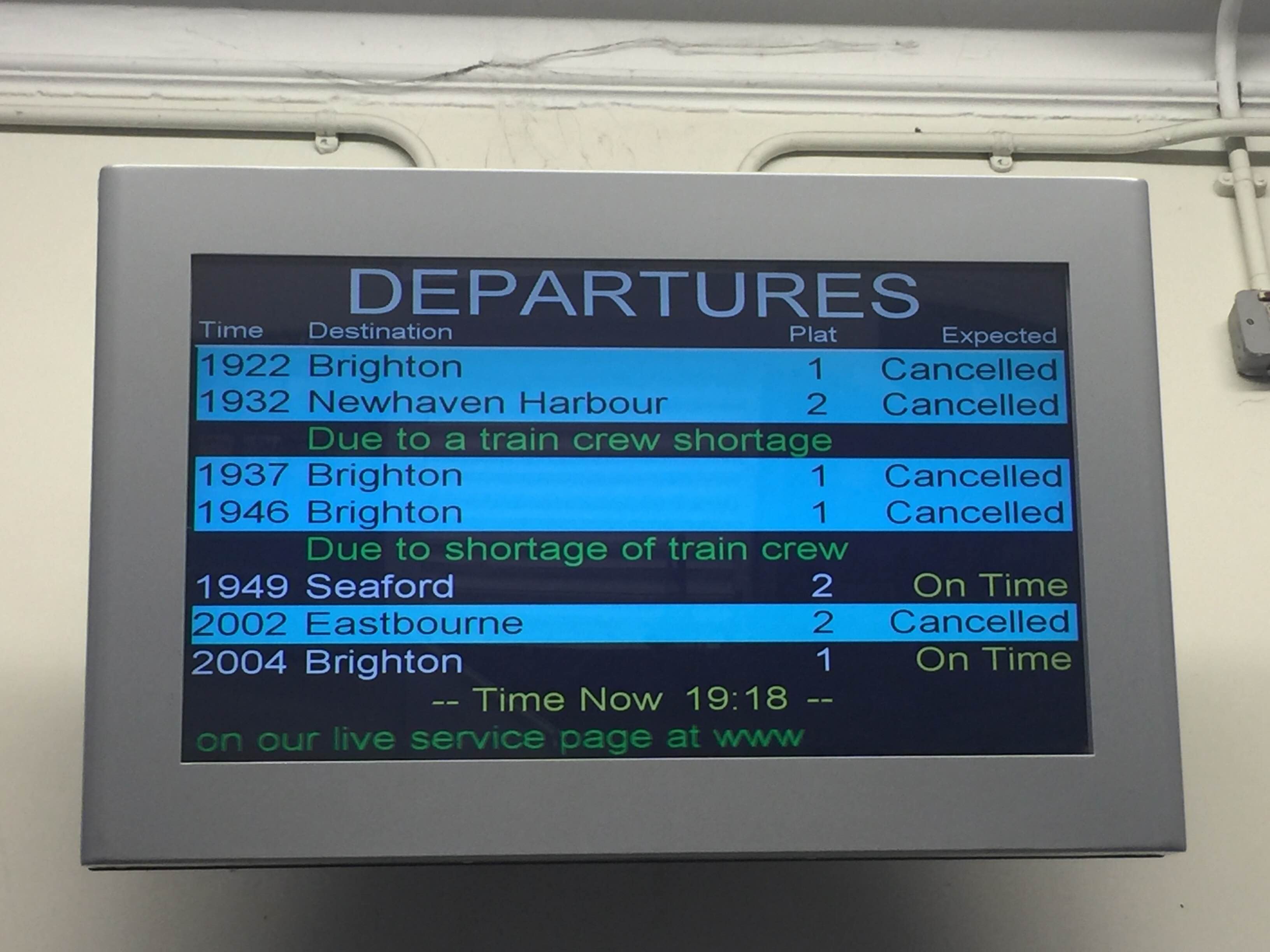Only a fortnight ago, and so much has happened since. I wrote an open letter to the chief executive of train operators Govia Thameslink Railway, Charles Horton, on this very website. It was read, along with another blog elsewhere, by over 100,000 people (picture above by Summer Dean).
Since then, we have lost a prime minister, membership of the European Union, most of the shadow cabinet, a Ukip leader and an England football manager, and Horton has finally appeared before the parliamentary select committee jamboree that is becoming de rigeur for managers who have made very public mistakes.
He wasn’t given an easy time. You can read the watch his performance here. His main message is that the extraordinary chaos unleashed on the railway lines of southern England by their franchises – Southern, Thameslink and Gatwick Express – will not be permanent.
The improvements at London Bridge will be ready later this year. They are also intending to impose contracts on guards which downgrade them to customer service supervisors – which means, if they don’t for some reason have a guard available, they can still run the train (actually now due for December).
I watched Horton’s evidence with growing scepticism. I’m sure that Southern train services will improve. It is hardly possible that they will stay quite as bad as they are now, and I suspect – as the possibilities of a general election loom – that rail minister Claire Perry may not provide them with the public support which she has been giving.
But don’t let us relax yet. There are three fundamental reasons why some chaos will continue for the rest of the year and beyond – or until ministers finally wrench the GTR franchises from the sweaty grip of the Go Ahead group.
These are the three reasons:
Reason #1. Because they don’t really know what is causing the chaos now.
Despite the rhetoric by local MPs, ministers and the company itself, that the chaos is being caused by some kind of low-level, informal industrial action which means that train crews call in sick to disrupt services, there is actually no evidence for this.
Yes, sickness rates have gone up by 40-50 per cent at one stage, from an average of 27 off a day to about 41 off. But those rates have now come down and the chaos continues.
It is convenient for the official mind – and no mind was ever so official as the managers of GTR – that, if something has gone wrong, somebody must be doing in deliberately. It isn’t actually clear that union members have been taking any action of the kind.
Quite the reverse, in fact. The many train crews who contacted me demonstrated a concern that they must go to work, if at all possible, because of the intense pressure that was falling on their colleagues.
Interestingly, my information suggests that many of the most militant railway crews are actually not left wing firebrands at all, The ones I’ve met have been Conservative voters, and they are mainly at work.
Reason #2: Because the collapse of staff morale has not been addressed.
The strong impression I have received, after being catapulted unexpectedly into the heart of this fascinating but depressing affair, is that GTR have unleashed a vicious circle which has led to a sense by many train crews and platform staff – and managers come to that – that their best efforts are unappreciated, their commitment has been betrayed, and that they have been left to deal with impossible chaos, incandescent passengers, crowded platforms and chaotic cancellations, without support.
That is why so many have been off sick. Because there comes a point when the most loyal member of staff breaks down – particularly if they feel locked into a kind of prison officer relationship with senior managers. I have heard of staff in tears, of sudden resignations on the job, of people who understandably find they can no longer cope unsupported with the stress.
The company has not addressed this. In fact, they don’t really seem to be aware of it – because of the business model they are using, running the railway at arms-length and as if it was a humming computer, run like an online game and not by people.
Reason #3. Because some of the worst hit services are actually driver-only.
I don’t begin to understand why this should be, but you can check out the phenomenon for yourself day after day here. Far from improving efficiency, taking guards off the trains appears to make them less reliable. Among the worst performing services in the GTR franchise in recent days have been Thameslink (driver-only) and Gatwick Express (driver-only).
It is that, because GTR are not alone, their failure to run an effective service implies that those public service operators which are using the same management techniques – highly centralised, bull-in-china-shop style – also have no effective information from the front line. They are therefore vulnerable to the same collapse.
It reflects some of the findings of the Chilcot Inquiry. Running everything from the centre, armed only with a fantasy that you only have to order something and it will happen (the Blair government called this ‘modernisation’), leads to chaos.














